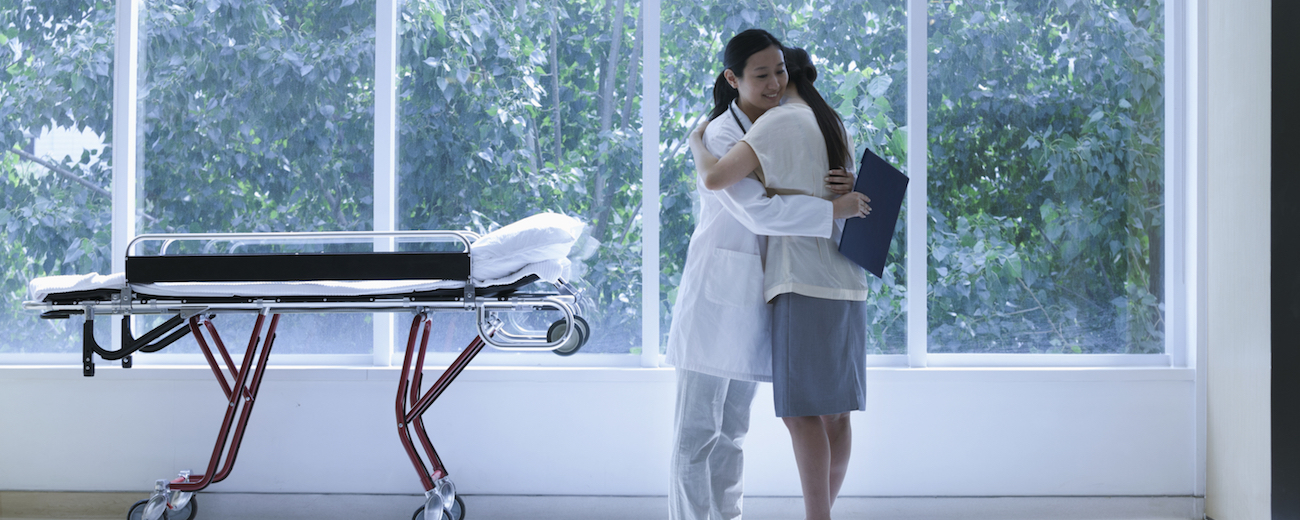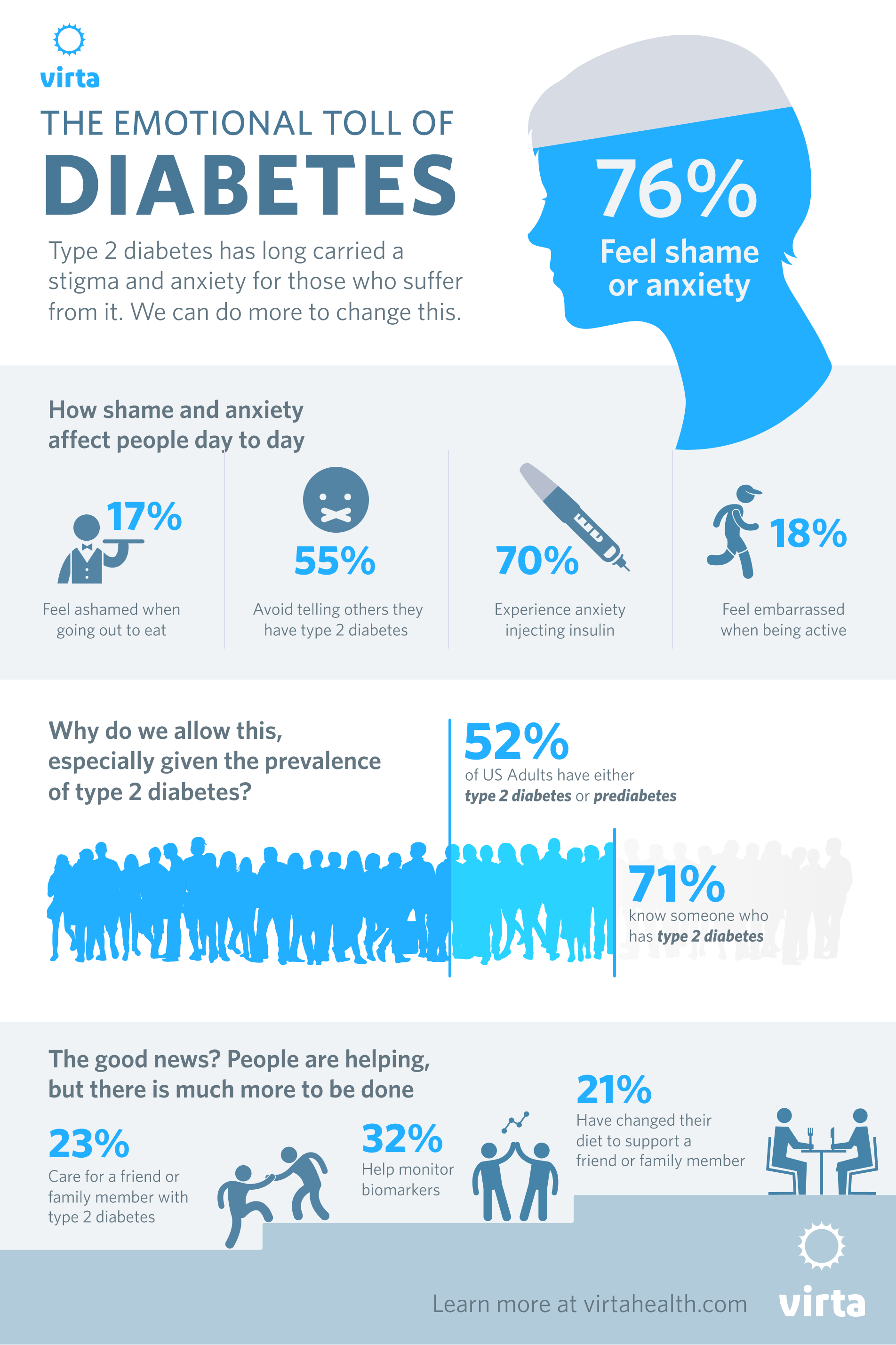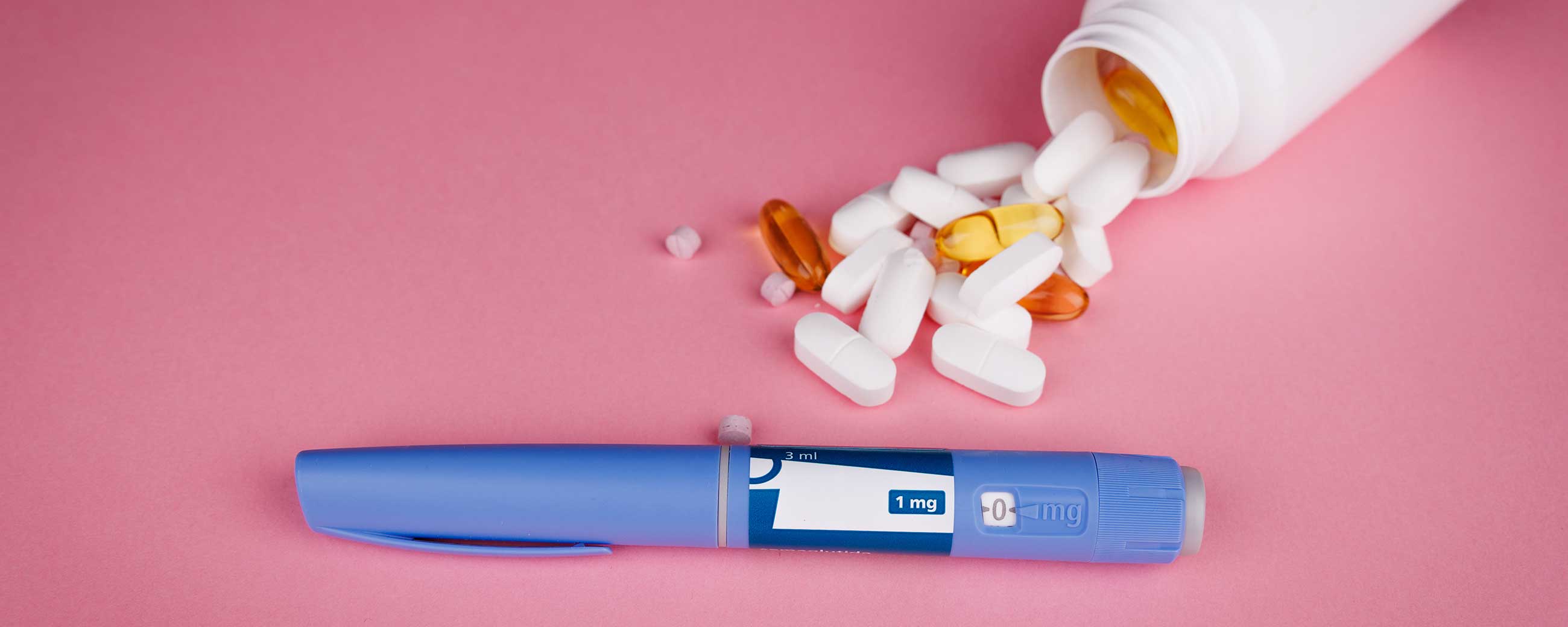
76% of People with Type 2 Diabetes Feel Shame Around Their Diagnosis. Here's What We Can Do About It.

Over half (52%) of the adult population in the US is suffering from type 2 diabetes or prediabetes, and a new Virta survey shows that a staggering 76% of people with type 2 diabetes experience shame around their diagnosis. This National Diabetes Month, Virta took a closer look at what this shame feels like for patients—and gathered advice from clinicians on how people living with type 2 diabetes can shed these feelings.
Diabetes isn't anyone's fault, and it's nothing to be ashamed of.
Unfortunately, the majority of people (55%) with type 2 diabetes avoid talking about it. That breaks down into 39% of people with type 2 diabetes who avoid telling their friends, family, or employer about their condition—and 16% who haven't told anyone at all.
The situations where people feel shame are startlingly common. People with type 2 diabetes often feel shame and embarrassment:
- When they go out to eat (17%)
- When they step on the scale (16%)
- When going to the doctor (13%)
- When taking insulin (13%)

This National Diabetes Month, let's practice empathy and compassion for people living with type 2 diabetes—whether that's for ourselves or for someone else.
Survey Methodology:
Learndipity Data Insights, on behalf of Virta Health, gathered data from 1,000 Americans around their opinions and experiences with Type 2 diabetes. To achieve a representative sample, Virta's survey was distributed to all 50 states, to subjects aged 14 to 54, across all genders, income levels, and marital and employment statuses. The survey has a margin of error of +/- 3 percent. The survey was conducted on September 14, 2017 via a survey platform that delivers and collects survey data via mobile phone.
This blog is intended for informational purposes only and is not meant to be a substitute for professional medical advice, diagnosis, or treatment. Always seek the advice of your physician or other qualified health provider with any questions you may have regarding a medical condition or any advice relating to your health. View full disclaimer
Are you living with type 2 diabetes, prediabetes, or unwanted weight?








